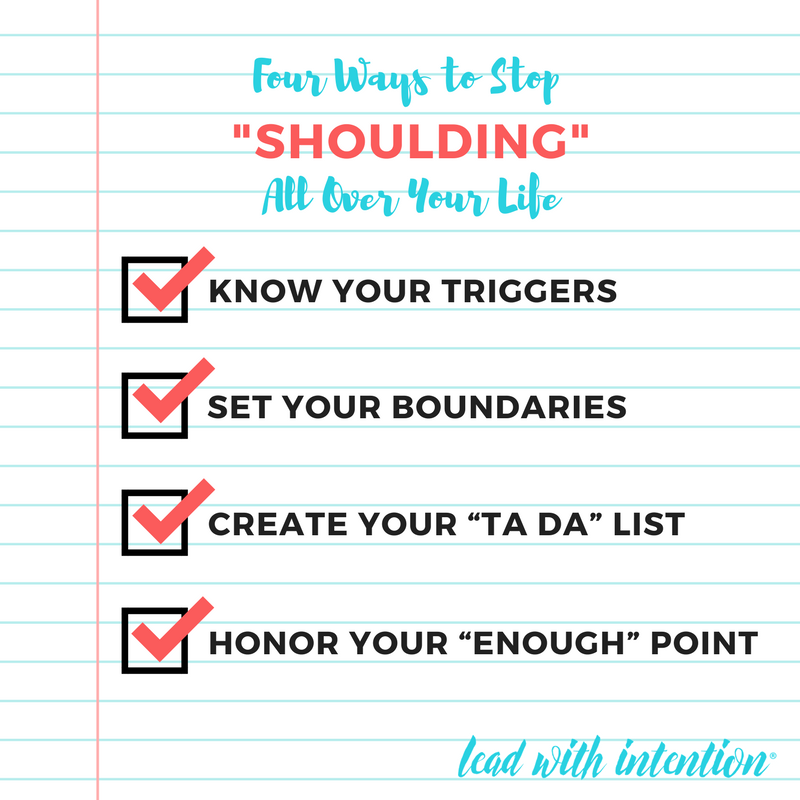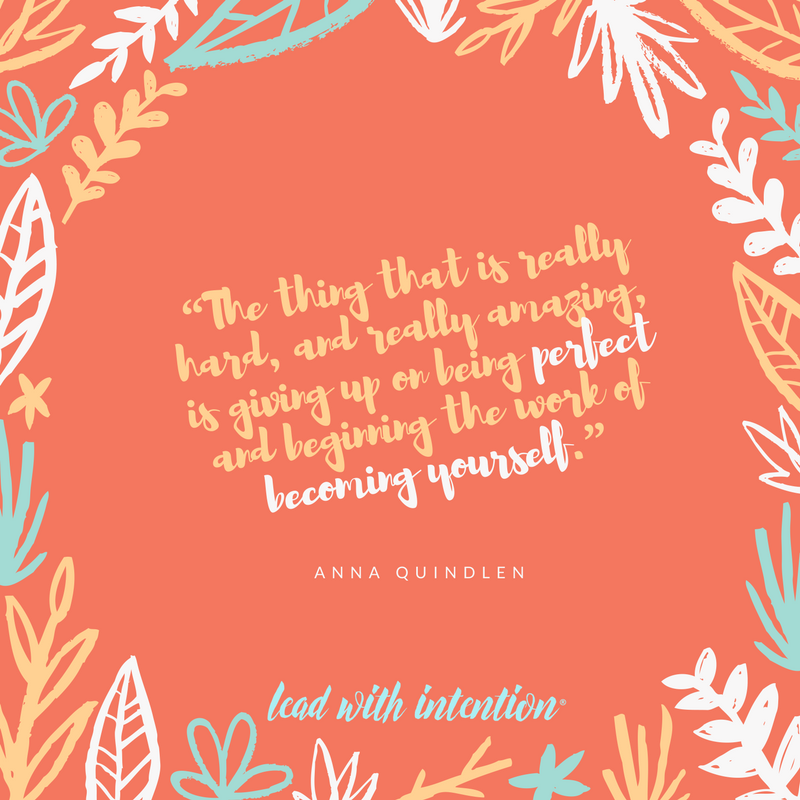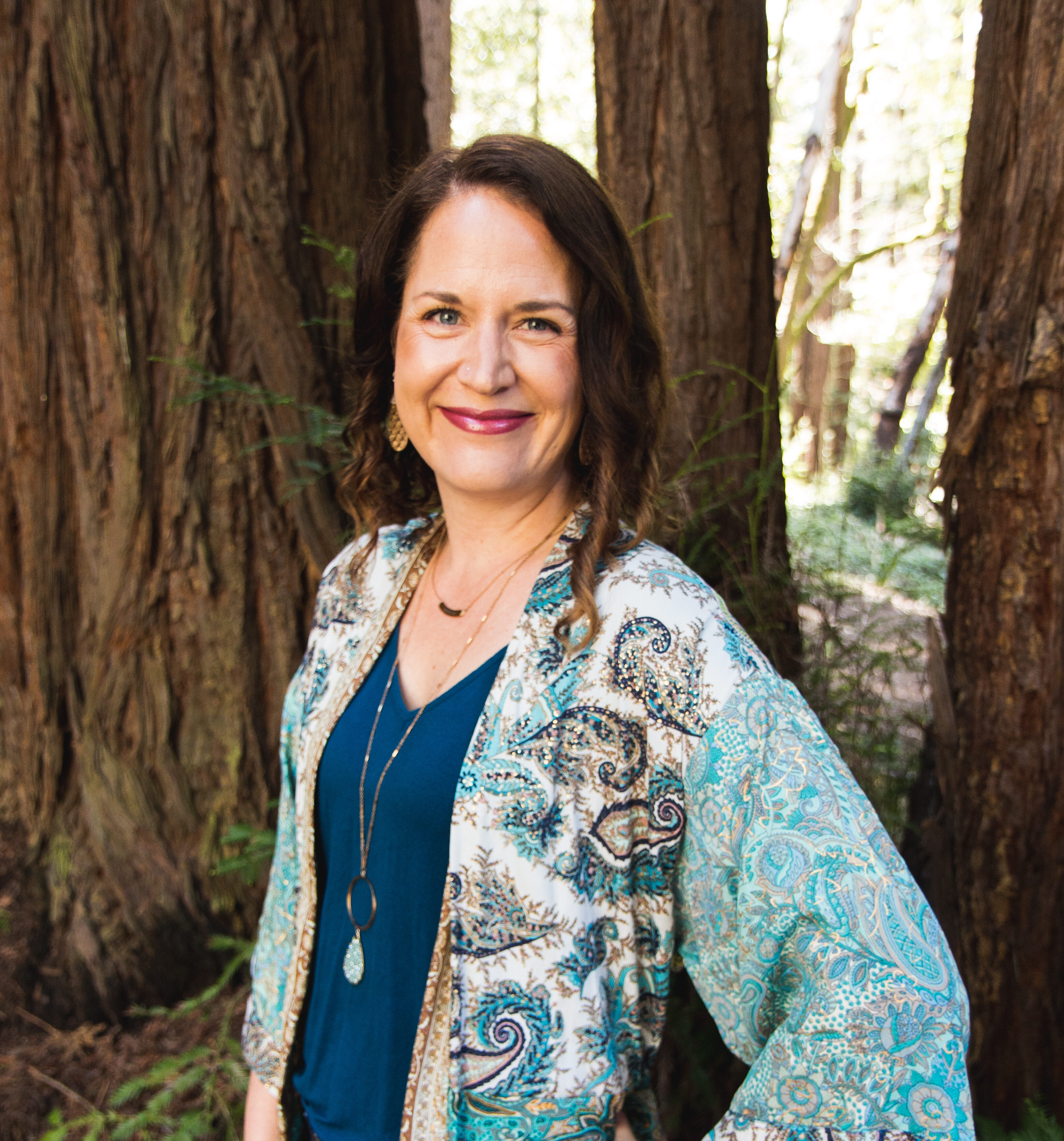How to turn your intentions into positive actions
How many times have you thought or even said “I really should…” in the last 24 hours?
I should have taken that job
I should get more sleep
I should have committed to less
I should…
We spend so much mental energy focusing on judging what we should have done in the past or planning what we should do in the future that we miss out on being authentic and available in the present.
Types of “shoulding”
· Past-Focus — I should have… where the primary motivation is judging
· Future-Focus — I should… where primary motivation is planning
Chronic “shoulding” is largely a first-world problem and is often driven by FOMO (Fear of Missing Out). In a recent report by ScienceDaily, Dr. Darlene McLaughlin shares that “the problem with FOMO is the individuals it impacts are looking outward instead of inward. When you’re so tuned in to the ‘other,’ or the ‘better’ (in your mind), you lose your authentic sense of self. This constant fear of missing out means you are not participating as a real person in your own world.”
The Real Impact of “Shoulding”
· Defers your happiness
· Promotes self-judgment
· Increases negative emotions like frustration, exhaustion, striving, and proving
· Constructs an obligation mindset
· Gives away your power to what you haven’t done
· Creates a life based on scarcity where you never have “enough”
And our “shoulding” is cyclical. It feeds itself as it becomes a habitual way of life unless we intentionally BREAK the CYCLE.
So instead of “shoulding” all over your life, let’s consider these four positive solutions.

1) Know Your Triggers
While there are many things that induce “shoulding,” here are some of the main motivators. Take a mental tally of the key culprits in your life that cause you to say “should.”
· Obligations
· Expectations
· Anxiety about what you’ll miss (FOMO)
· Reputation management
· Seeking approval and acceptance
2) Set Your Boundaries
What you assign urgency to is what you do. Take time to distinguish if something is truly urgent, or just feels that way. When you prioritize what is most important — not just what appears critical in the moment — you are able to set boundaries that are in line with your values. And when you have clear boundaries that define values-based intentions, the “shoulds” don’t have as much mental airtime to broadcast.
3) Create Your “Ta Da” List (not just your “To Do” list)
One of the recurring themes I heard in my Millennial Leadership Project was that many high achievers felt a strong level of frustration and even guilt when they didn’t finish everything they thought they should do. Instead of letting your “to do” list determine your success, try creating a “ta da” list at the end of each day with everything you completed and then celebrate what’s done!
4) Honor Your “Enough” Point
Don’t let the powerful “shoulds” place efficiency over sufficiency. Begin to determine what “enough” looks and feels like for you with each tasks or commitment. Before you reach your capacity, consider what your “enough” point is — the space when you can honestly say “I’m done for now” and then hit pause. Here, you’ll find a space where achievement and fulfillment can co-exist.
Your challenge: Stop “shoulding” all over your life and begin turning your intentions into positive actions.


Leslie Bosserman, M.Ed., CPCC

Executive Coach + Lifestyle Strategist for Millennial Leaders + Managers

Originally published at medium.com

